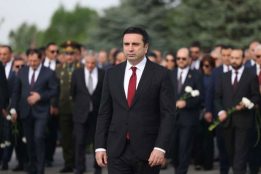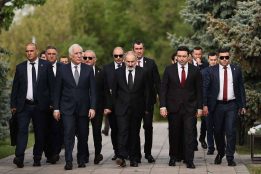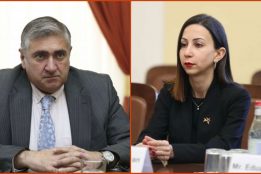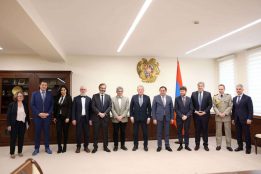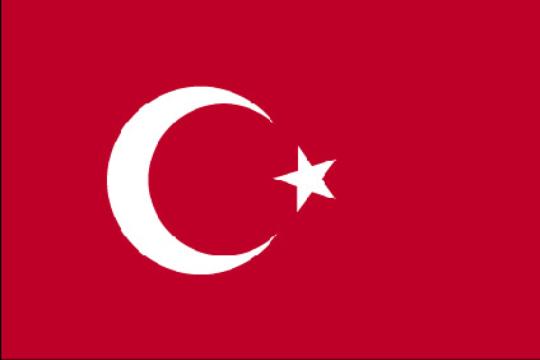
Eurasianet published Yigal Schleifer’s recent article on Turkey’s regional role after Israel-Gaza conflict. Read the full article here.
It was only a few years ago that Turkey’s Middle East foreign policy, as orchestrated by the ruling Justice and Development Party (AKP), showed so much promise. At one point, Ankara was mediating between Israel and Syria, negotiating a resolution to the standoff over Iran’s controversial nuclear program and was involved in one way or another in helping resolve a host of other regional problems. As many analysts saw it, with its growing economy, strong democracy (at least compared to its Middle Eastern neighbors) and proactive foreign policy that focused on promoting “soft power” approaches, Turkey was set to play a defining regional role in the coming years.
Recent events, though, have raises some significant questions about whether Turkey can become the regional superpower it had set out to become. Writing in a Nov. 25 column in Today’s Zaman, analyst Yavuz Baydar sums up Turkey’s current position in rather uncharitable terms:
Turkey, once full of promises as a leading regional power, no longer leads; it only follows. It started to send signals as an old style state whose voice is a blend of anger, threat, resentment and disappointment. This must be addressed.
The ongoing crisis in Syria, for example, has shown the limits of Turkish power — both soft and hard — and also called into question the AKP leadership’s ability to correctly read regional developments. But the recent flareup of hostilites between Israel and Hamas made even clearer how diminished Ankara’s voice is in the Middle East right now.
As the New York Times pointed out last week, with Turkey’s relations with Israel now completely frozen following the 2010 Mavi Marmara incident, Ankara had very little diplomatic leverage during the recent Gaza crisis and found itself on the sidelines as a ceasefire was being negotiated. From the Times:
Turkey’s stature in the Middle East has soared in recent years as it became a vocal defender of Palestinian rights and an outspoken critic of Israel and pursued a foreign policy whose intent was to become a decisive power in regional affairs. But as Gaza and Israel were once again shooting at each other, Turkey found that it had to take a back seat to Egypt on the stage of high diplomacy. The heavy lifting unfolded in Cairo under the inexperienced hand of Egypt’s new president, Mohamed Morsi, whose political roots lie in the Muslim Brotherhood, the Sunni Islamist movement that helped found Hamas.
But Turkey’s diminishing role in shaping regional events goes beyond just having bad relations with Israel. As Baydar writes in his recent column, one of Turkish foreign policy’s biggest problems right now is one of style, particularly that of Prime Minister Recep Tayyip Erdogan, whose righteous, Islamic-flavored person has come to dominate Turkish politics and how they are perceived abroad. From his article:
In almost every event, pushing the necessary diplomatic language aside, he managed to irk and even alienate friends and foes. This was more audible than ever during the Gaza crisis, when he lashed out at three permanent members of the UN, “strongly disagreed” with Obama, and showed no sign of softening on a dialogue with Israel. His supporters in the media do him a disfavor while applauding every such move.
Righteousness being another feature of his, Erdoğan may, with a strong sense of morale, have had all the reasons to be angry with Ehud Olmert, Shimon Peres, Bashar al-Assad, Benjamin Netanyahu, Maliki and others, but those outbursts only served to limit his room to maneuver, and helped display the capacity limitations of his country’s foreign policy drive.
Egyptian President Morsi’s key role in resolving the recent Gaza crisis highlights another reason why Ankara may find it hard to assume the role of regional superpower. Before the start of the Arab uprisings two years ago, Turkey was indeed a rising star, albeit one in a region filled with decrepit regimes run by ineffective and out-of-touch rulers. The changes of the last few years, particularly in Egypt, which is rapidly reclaiming the politically influential and relevant role it traditionally played in the Middle East, have meant that Turkey now has to compete with other rising regional players. In order to succeed in this new environment, Turkey’s Middle East foreign policy will require a serious overhaul.

















